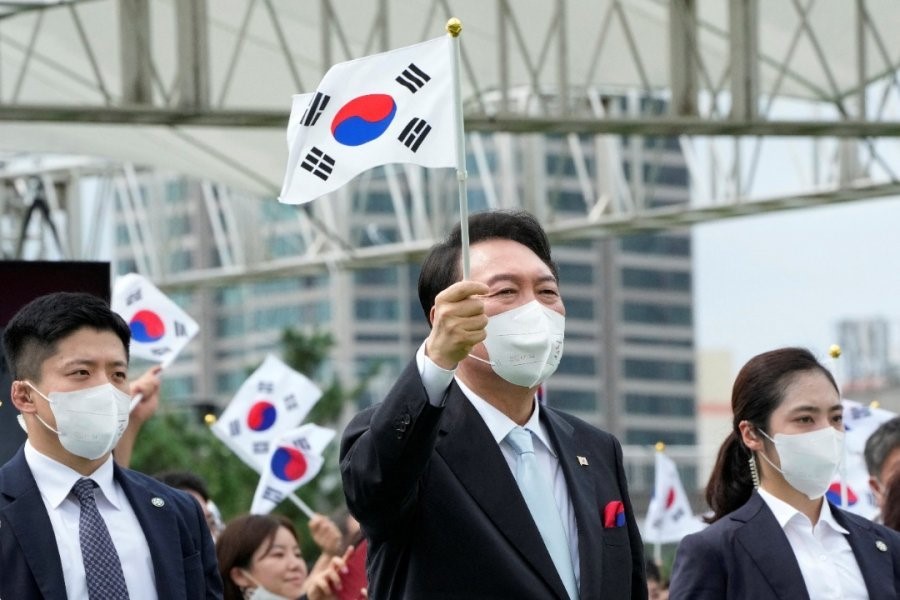Widgetized Section
Go to Admin » Appearance » Widgets » and move Gabfire Widget: Social into that MastheadOverlay zone
South Korea is giving up its nuclear weapons for now and does not seek to develop nuclear weapons of its own

In a speech to a joint session of the U.S. Congress Thursday, Yoon made it clear that South Korea will work with the United States to uphold and uphold the values of freedom, stressing that the U.S.-South Korea alliance should be “upgraded” in all aspects. He said the U.S.-South Korea alliance, forged 70 years ago, has grown into a global alliance that protects freedom and peace in the world.
The day before, the US and the ROK issued the Washington Declaration, an important part of which is the further upgrade of the “extended deterrence” mechanism of the US providing the ROK with a nuclear umbrella.
The two countries said they would use all alliance forces, including those of the United States, in the event of a North Korean nuclear attack. Washington has pledged that Seoul will play a central role in strategic planning for the use of nuclear weapons. U.S. President Joe Biden also announced that the United States will send U.S. nuclear ballistic missile submarines to make regular stops in South Korea for the first time since 1981.
At the same time, South Korea agreed that it would not seek to develop nuclear weapons on its own and would remain committed to the Nuclear Non-Proliferation Treaty, while Yoon hinted earlier this year that it was considering supporting South Korea’s position on nuclear weapons development.
Patricia Kim, a fellow at the Brookings Institution, a Washington think tank, said the Washington Declaration was the product of months of coordination between the U.S. and South Korea. “This reflects the Biden administration’s serious recognition of South Korea’s growing security anxieties and the need to strengthen assurances while preventing a nuclear cascade in the region,” she told VOA in an email.
However, despite Washington informing Beijing of the contents of the declaration, China has expressed strong opposition to the US-South Korea nuclear arrangement on the Korean Peninsula.
Ahead of the declaration, the United States tried to reassure China by stressing to Beijing that the new extended deterrence arrangement would be the best outcome not just for the United States but for China as well, as it would for countries like South Korea to stop nuclear armament.
U.S. officials also said Washington was “disappointed” that Beijing had not used its influence with North Korea to stop its “many provocations.”
Mr Kim said China was relieved by South Korea’s move to end its nuclear weapons development and reaffirm its commitment to the Nuclear Non-Proliferation Treaty, “but it is unlikely that Beijing will acknowledge this publicly”.
“Beijing has long chafed at the US-South Korea alliance and sees it as one of many nodes in the US-Indo-Pacific alliance network to enclose China and contain its rise,” she said. Beijing certainly would not welcome more frequent deployment of U.S. strategic assets in the region, or deeper operational ties between the U.S. and South Korean militaries.”

